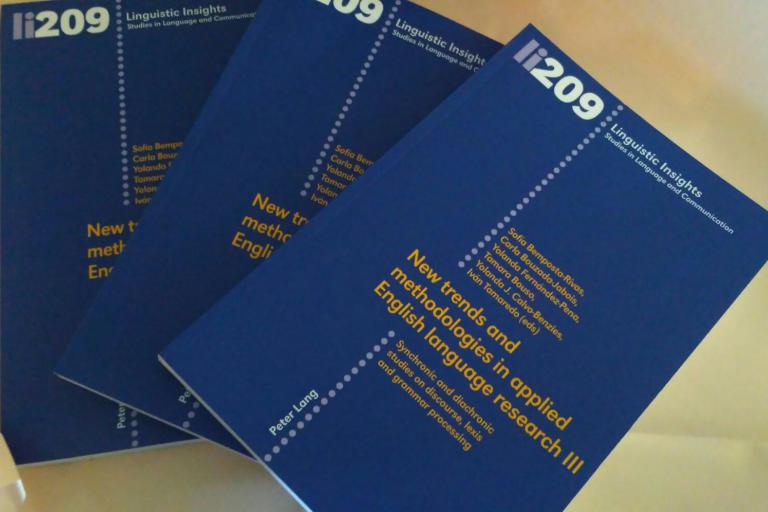On May 15 and 16 2012 Prof. J. Lachlan Mackenzie conducted the seminar ‘Topics in English grammar and lexis’.
CV details
Prof Lachlan Mackenzie is Honorary Professor of Functional Linguistics at the Vrije Universiteit Amsterdam since 2007. At this university he started his career as a lecturer after completing in 1973 a 5-year MA course in French and German at the University of Aberdeen, and obtaining a PhD in Linguistics from the University of Edinburgh in 1978. His expertise is in European languages, with a specialization in English linguistics.
This expertise has allowed him to work as a consultant in languages and linguistics, with over 30 years of experience. Apart from English, language and linguistics, and typology, his research interests comprise lexicology, morphology, semantics and pragmatics. Throughout his career, he has actively collaborated with universities and research centres across Europe. Based in Portugal, he has worked for the last 8 years as a researcher for the ‘Discourse and Literacy’ group of the Institute for Theoretical and Computational Linguistics (ILTEC) in Lisbon. His research there is focused on the relation between Functional Discourse Grammar and dialogue.
Prof Lachlan Mackenzie combines his work as a researcher at the Portuguese Institute and as a consultant with the editing of the major journal of functional linguistics, Functions of Language, and the work derived from his position of Research Manager of the Santiago-based international research programme SCIMITAR.
Among Prof Mackenzie’s most recent publications are the following: the well-known 2008 monograph, co-authored with Kees Hengeveld, Functional Discourse Grammar: a typologically-based theory of language atructure (Oxford University Press); Writing in English: a guide for advanced learners (2nd ed. 2011, A. Francke), co-authored with Dirk Siepmann, John D. Gallagher and Mike Hannay; and the brand new grammar Compare and contrast: an English grammar for speakers of Spanish, co-authored with Elena Martínez Caro (2012, Comares).
Outline of the seminar
The seminar focused on four topics:
1. The double-possessive nominalization structure (eg. Iraq’s invasion of Kuwait)
The presentation focused on the frequency of occurrence of the structure, on its purpose of use, syntactic positioning, the semantic categories of entity proposed by Functional Discourse Grammar, the interaction of nominalization and psych verbs, and its effect on syntactic ‘priming’. It was concluded that the structure is the least used form of nominalization in English. Though it is assumed to have the characteristics of a full transitive clause, it is linked metonymically to various other meanings. It is mainly used to designate mental processes, and it is not in free variation with full clauses.
2. The adverbializing construction on a friendly basis
The claim is that the formula on a(n) _ basis should be recognized as a construction with a distinct function in English grammar. Based on a quantitative analysis of the BNC, the high frequency of on a regular basis renders this formula as a prototype for the construction. On a regular basis was contrasted with regularly in terms of the frequency and periodicity it expresses. The formula was also analyzed in terms of the complex fillers occupying the slot before basis: their frequency, semantic and morphosyntactic characteristics, and punctuation.
3. English fail to
This verb was shown to have uses as a periphrastic negative. Adopting a corpus-analytical approach, the verb fail was examined as a complement-taking verb, a ‘subject-raising verb’, and as a periphrasis; the frequency and characteristic of the verbs following fail to were also analysed.
4. ‘English as a moving target’
Prof Mackenzie looked into the advantages of a teaching approach in which the teacher adopts the role of a fellow learner and for which the Google n-gram viewer becomes a very useful teaching tool. With a few searches for lexicology, inflectional and derivational morphology, Prof Mackenzie demonstrated that the tool is a very attractive device, since it allows comparability and contrast between languages and creates a powerful motivating effect on students towards using corpora to find out linguistic trends on their own.







